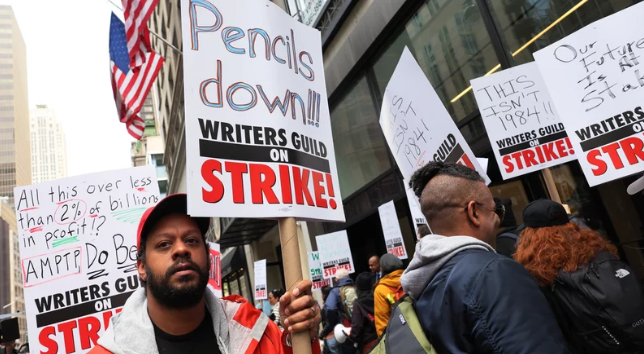Since the beginning of what we know as Hollywood, the mark of a good movie meant more than just A-list actors and an amazingly skilled director- it meant how the genius and creativity of the writers’ room translated onto the screen.
The writer’s strike affected more than your favorite shows and movies, with productions being either postponed or canceled. The strike was the first step in setting precedents for job protection against Artificial Intelligence and making sure that creatives are paid for their hard work. With AI becoming more than a tool to finish homework, the conversation turns to the preservation of jobs, especially in creative industries.
Although they are the backbone of every good TV show and movie, writers have recently lost jobs to AI and are being pressured to produce quality work in an extremely compressed amount of time. Luckily, they took matters into their own hands. The strike that took place has broken records and will be remembered in history for its accomplishments. For close to 6 months, the production of TV shows and movies was halted, but what made this strike even more powerful were the numerous actors who supported and struck along with their fellow writers, making this one of the most effective strikes in Hollywood’s history.
After 148 days, the Writer Guild of America reached an agreement and the strike came officially to an end. White the details of the negotiations have yet to be released publicly, it can be inferred that both sides got the fair end of the deal. In the end, the writer strike is about the unfair expectations for writers to make movies and TV shows in less time for the same amount of money- anyone who does their job should be compensated fairly for it.
Sources:
https://www.latimes.com/entertainment-arts/actors-writers
https://apnews.com/article/actors-strike-contract-a7a529acaf6b5b38aac93722db54c193
https://www.vanityfair.com/hollywood/2023/10/writers-strike-winners-and-losers



